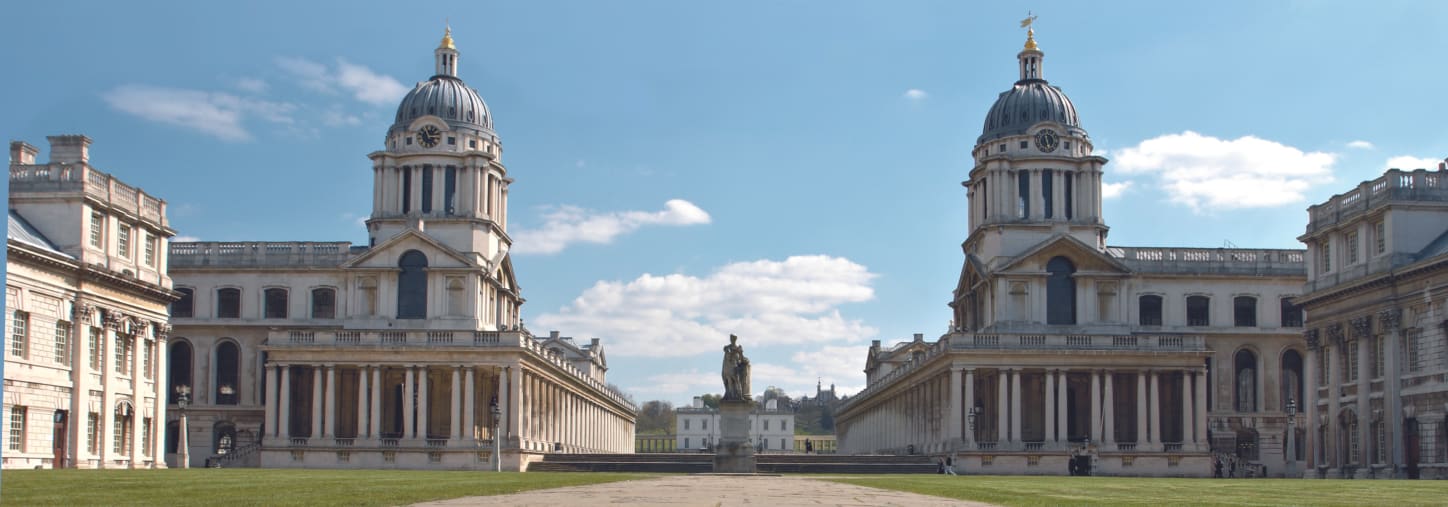
MA Applied Criminology
London, United Kingdom
DURATION
1 Years
LANGUAGES
English
PACE
Full time, Part time
APPLICATION DEADLINE
Request application deadline
EARLIEST START DATE
Sep 2024
TUITION FEES
GBP 17,450 / per year *

STUDY FORMAT
On-Campus
* full-time international | home £11,000 per year; part-time international £2,908 per 30 credits | home £1,850 per 30 credits
Introduction
This master's degree equips you with a deep understanding of how criminological theory, concepts and methods can be applied and understood in the context of criminal justice practice.
The MA in Applied Criminology offers students a practical, contemporary and critically engaged programme of study that draws on the extensive practice experience and applied research specialisms of the criminology teaching team. This master's degree equips you with a deep understanding of the criminal justice system and its partnered agencies, as well as practical knowledge of the organisational and structural aspects of the wider sector. This master's will be particularly useful for those seeking professional development and higher responsibility roles in; probation, prisons, rehabilitation, policing, youth justice, violence reduction, social justice and third-sector services.
What you should know about this course
- The programme is ideal for practitioners already working in related fields, or those wishing to enter higher responsibility roles in the criminal justice sector.
- Students aim to complete the MA within 12 months (full-time) or 24 months (part-time).
- You can exit at intermediate stages with a Postgraduate Certificate or Postgraduate Diploma award.
- The MA includes a dissertation, which allows you to conduct your research with 1-to-1 supervision.
- You can tailor the programme to your specific areas of interest through a range of optional modules.
Admissions
Scholarships and Funding
There is a range of financial support options available to support your studies, including the Aspire@Greenwich award for study resources that many full-time students will receive.
EU students may be eligible for a bursary to support their studies. View our EU bursary to find out more.
Discover more about grants, student loans, bursaries and scholarships. We also provide advice and support on budgeting, money management, and financial hardship.
Curriculum
Full-Time Course
Year 1
Students are required to study the following compulsory modules:
- Applied Criminology (15 credits)
- Crime Theory (30 Credits)
- Comparative Criminological Research Methods (15 credits)
- Postgraduate Dissertation Project (60 credits)
Students are also required to choose 60 credits from this list of options:
- Restorative Justice: Complex and sensitive cases (15 credits)
- Psychology Development and Crime (15 credits)
- Controversies in Contemporary Criminology (30 credits)
- The voluntary sector in criminal and social justice (15 credits)
- Prisons: Histories past and present (15 credits)
- Crime and Criminal Justice in a Globalised and Gendered World (30 credits)
- Crime, Terrorism and the State (30 credits)
- Sexuality, Culture and Criminality (30 credits)
Part Time Course
Year 1
Students are required to study the following compulsory modules:
- Applied Criminology (15 credits)
- Crime Theory (30 Credits)
- Comparative Criminological Research Methods (15 credits)
Students are also required to choose 30 credits from this list of options:
- Restorative Justice: Complex and sensitive cases (15 credits)
- Psychology Development and Crime (15 credits)
- Controversies in Contemporary Criminology (30 credits)
- The voluntary sector in criminal and social justice (15 credits)
- Prisons: Histories past and present (15 credits)
- Crime and Criminal Justice in a Globalised and Gendered World (30 credits)
- Crime, Terrorism and the State (30 credits)
- Sexuality, Culture and Criminality (30 credits)
Year 2
Students are required to study the following compulsory modules:
- Postgraduate Dissertation Project (60 credits)
Students are also required to choose 30 credits from this list of options (different to options taken in Year 1):
- Restorative Justice: Complex and sensitive cases (15 credits)
- Psychology Development and Crime (15 credits)
- Controversies in Contemporary Criminology (30 credits)
- The voluntary sector in criminal and social justice (15 credits)
- Prisons: Histories past and present (15 credits)
- Crime and Criminal Justice in a Globalised and Gendered World (30 credits)
- Crime, Terrorism and the State (30 credits)
- Sexuality, Culture and Criminality (30 credits)
Program Tuition Fee
Career Opportunities
What sort of careers do graduates pursue?
Many of our graduates already have careers, but some seek promotion or change roles within the same organisation. Others join the criminal justice system (police, courts, probation, prisons), work in security, youth justice, intelligence, social justice, research or for a charitable or commercial organisation.
Do you provide employability services?
Employability activities take place all the time at Greenwich and students are encouraged to take part in as many opportunities as possible. The central Employability and Careers Service provides support for students preparing to apply for placements and graduate roles, such as CV clinics, mock interviews and employability skills workshops. In addition, your School has a dedicated Employability Officer who will be organising work-related activities throughout the year which will help you to build your industry knowledge and networks.
